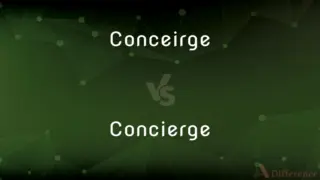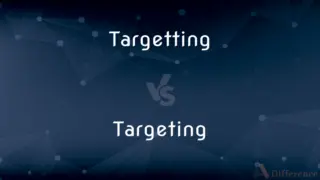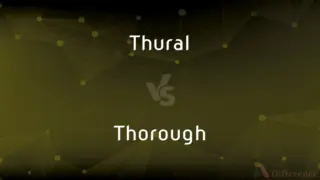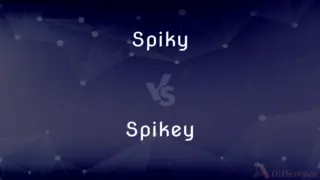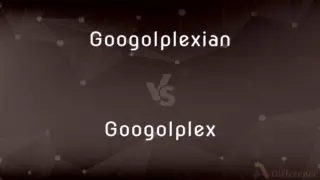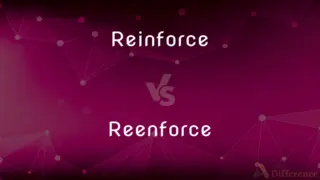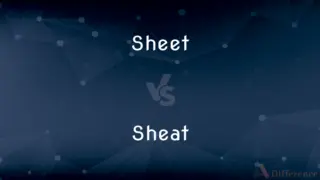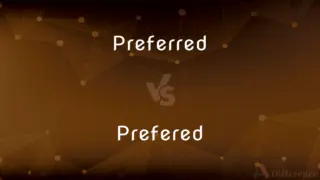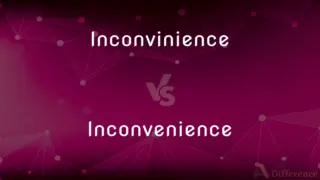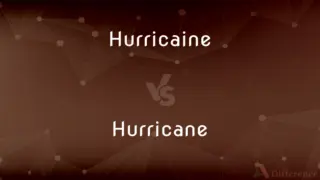Finally vs. Finaly — Which is Correct Spelling?
By Tayyaba Rehman — Updated on March 18, 2024
"Finally" is the correct English adverb denoting something happening after a long time or at the end, while "Finaly" is simply a misspelling of "Finally."
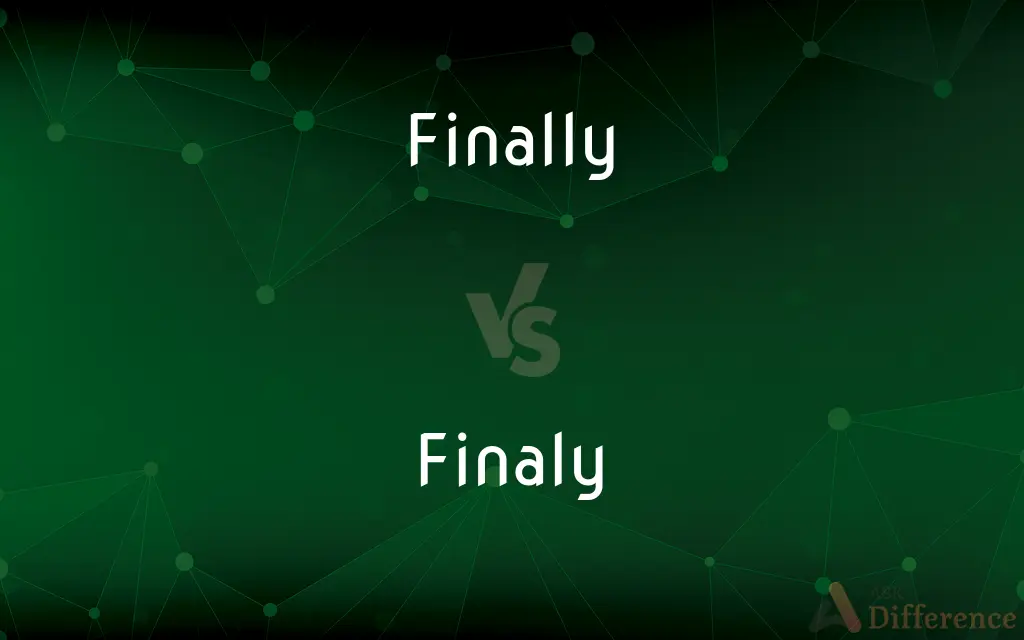
Table of Contents
Which is correct: Finally or Finaly
How to spell Finally?

Finally
Correct Spelling

Finaly
Incorrect Spelling
ADVERTISEMENT
Key Differences
"Finally" is the correct spelling of the adverb in English, which is used to suggest something happening after a long time or at the end. It can be used to convey relief, emphasize an ultimate point or outcome, or signify the last in a series of items.
On the other hand, "Finaly" is not a recognized term in standard English. If you encounter it, it's most likely a typo, a misspelling of "Finally." Spelling errors like this one can lead to confusion and misinterpretation in written communication.
Spelling words correctly is essential in written English to maintain clear and effective communication. Incorrect spelling can disrupt understanding and present an unprofessional image, especially in formal contexts. So, "Finally" is the appropriate term to use in your writing.
How Do You Spell Finaly Correctly?
Incorrect: Can you believe it's finaly Friday?
Correct: Can you believe it's finally Friday?
Incorrect: She completed her project finaly, just before the deadline.
Correct: She completed her project finally, just before the deadline.
ADVERTISEMENT
Incorrect: Finaly, we reached the end of the presentation.
Correct: Finally, we reached the end of the presentation.
Incorrect: I finaly managed to solve the puzzle after hours of trying.
Correct: I finally managed to solve the puzzle after hours of trying.
Incorrect: He waited finaly for the results to be announced.
Correct: He waited finally for the results to be announced.
Finally Definitions
As a marker of the ultimate or conclusive decision or action in a process or sequence.
They finally decided on a name for the puppy after a week of discussion.
When used to signify the last event or item in a series.
She performed several songs and finally closed the concert with her most popular hit.
Forming or occurring at the end; last.
(manner) Definitively, comprehensively.
The question of his long-term success has now been finally settled.
As the end result of a succession or process.
As an expression of relief or the end of patience after waiting for something.
Finally, the wait is over. The holiday season has started.
Of or constituting the end result of a succession or process; ultimate.
An act with both an immediate and a final purpose.
At the end or conclusion; ultimately; lastly; as, the contest was long, but the Romans finally conquered.
Whom patience finally must crown.
Completely; beyond recovery.
Not any house of noble English in Ireland was utterly destroyed or finally rooted out.
To denote something that happens after a long delay or after numerous attempts.
Finally, after dozens of attempts, I was able to solve the puzzle.
At the end or conclusion; ultimately.
The contest was long, but the Romans finally conquered.
(sequence) To finish (with); lastly (in the present).
Finally, I washed my dog.
After a long period of time or an especially long delay.
As a way to introduce an unexpected, surprising, or significant point or fact in a discussion or story.
Finally, you should know that this strategy has a potential risk.
As a signal to shift or transition towards the conclusion or a significant point of an argument or narrative.
After reviewing the facts and the evidence, let's finally look at the eyewitness accounts.
Finally Meaning in a Sentence
After months of saving, I finally bought the video game I wanted.
She finally found her lost library book under her bed.
After a lot of hard work, she finally won the science fair.
He finally finished his homework and went out to play.
We finally saw a shooting star after waiting outside for hours.
They finally arrived at the beach for their vacation.
The class finally understood the math concept after the teacher explained it differently.
We finally made it to the top of the hiking trail.
The movie started after we finally found seats in the crowded theater.
The long winter finally gave way to spring.
I finally read the book my friend recommended to me.
After a year of piano lessons, he finally played his first song flawlessly.
I finally saw my best friend again after she moved away.
My sister finally learned how to ride a bicycle without training wheels.
The team finally scored a goal in the last minute of the game.
After trying several times, I finally managed to bake the perfect cake.
She finally decided what to wear to the party.
The family finally got a puppy after years of asking their parents.
After a long delay, the flight finally took off.
The mystery of the missing cookies was finally solved.
She finally got an A on her math test after studying really hard.
After weeks of cloudy weather, we finally had a sunny day.
He finally cleaned his room after his mom asked him multiple times.
We finally watched the finale of our favorite TV show.
She finally received the letter she had been waiting for.
Finally Idioms & Phrases
Finally comes the dawn
Means that something good happens after a long period of waiting or difficulty.
After weeks of rain, finally comes the dawn, and we saw the sun.
Common Curiosities
Can you start a sentence with finally?
Yes, you can start a sentence with "finally" to indicate that something has happened after a delay or to mark the conclusion of a series of events or thoughts.
Can you say firstly secondly finally?
Yes, you can say "firstly," "secondly," and "finally" to order points in your argument or steps in a process. These adverbs help to make your ideas clear and understandable.
Is it finally or finally?
There is only one correct spelling, and that is "finally."
Is finally informal or formal?
"Finally" can be used in both formal and informal contexts, and its appropriateness depends on the sentence it is used in.
Is finally and in conclusion the same?
While both "finally" and "in conclusion" can be used to signify the end of something, "finally" often carries a sense of relief or long-awaitedness, while "in conclusion" is typically used to summarize or to signal the end of a discussion or speech.
What is the difference between finally and finely?
"Finally" refers to something happening after a long time or at the end, while "finely" means something done in a delicate or precise manner.
What type of word is finally?
"Finally" is an adverb that modifies verbs, adjectives, or other adverbs to express a sense of completion or conclusion.
Can we use multiple finally?
In the context of programming, multiple "finally" blocks in a nested sequence of try-catch-finally blocks are allowed. In English, multiple instances of "finally" can be used in separate sentences or clauses but using "finally" multiple times in a single sentence or clause can be grammatically incorrect or awkward.
When should I use finally?
"Finally" is used to signify the end of a series or the last in succession. It can also be used to indicate something happening after a long time or after many attempts.
What is the difference between final and finally?
"Final" is an adjective that indicates the last in a series or the end of something, whereas "finally" is an adverb that denotes an action that occurred after a long time or at the end.
What is the synonym phrase of finally?
Synonym phrases of "finally" include "at long last," "in the end," "after a long time," "in conclusion," and "last but not least."
Should I use lastly or finally?
Both "lastly" and "finally" can be used interchangeably to indicate the last point or element in a series. "Lastly" might sound more formal, while "finally" conveys relief that something is over.
What can you say instead of finally?
Other words that can be used in place of "finally" include "ultimately," "eventually," "at last," "in conclusion," and "lastly."
Why do we use finally and how it differs from the final keyword?
In English, "finally" denotes something that happens at the end or after a long time. In programming, "finally" is used in a try-catch-finally block to ensure a certain block of code always executes, regardless of exceptions. The "final" keyword, on the other hand, can be used in programming languages like Java to make a variable unchangeable, a method un-overridable, or a class unextendable.
Can we write finally alone?
In English language usage, "finally" can be used alone, often for emphasis or to express relief. In a programming context, "finally" cannot stand alone and must be used within a try-catch-finally block.
What is the rule for spelling finally?
"Finally" is spelled as F-I-N-A-L-L-Y. It is derived from the word "final," with the suffix "-ly" added to turn it into an adverb.
Share Your Discovery
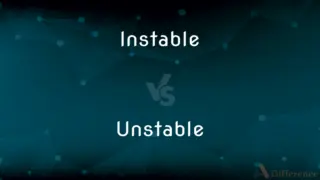
Previous Comparison
Instable vs. Unstable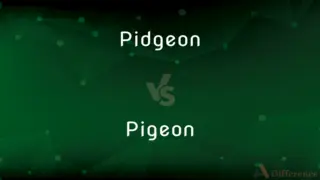
Next Comparison
Pidgeon vs. PigeonAuthor Spotlight
Written by
Tayyaba RehmanTayyaba Rehman is a distinguished writer, currently serving as a primary contributor to askdifference.com. As a researcher in semantics and etymology, Tayyaba's passion for the complexity of languages and their distinctions has found a perfect home on the platform. Tayyaba delves into the intricacies of language, distinguishing between commonly confused words and phrases, thereby providing clarity for readers worldwide.


